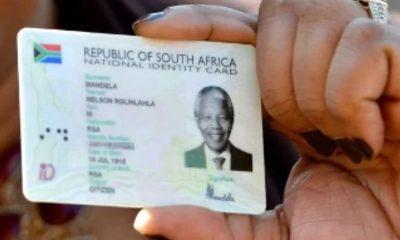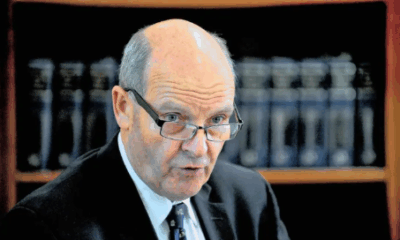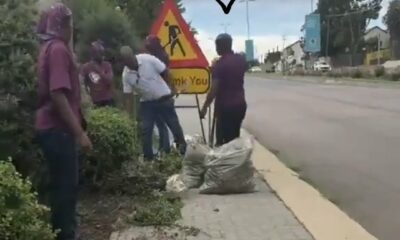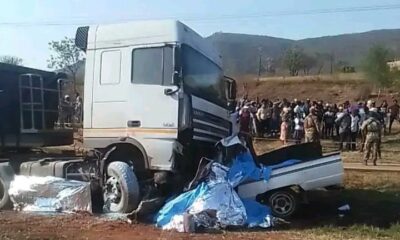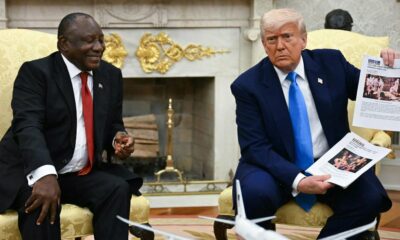News
Five Bombshells from Day 10: Mchunu’s Testimony on Police Corruption
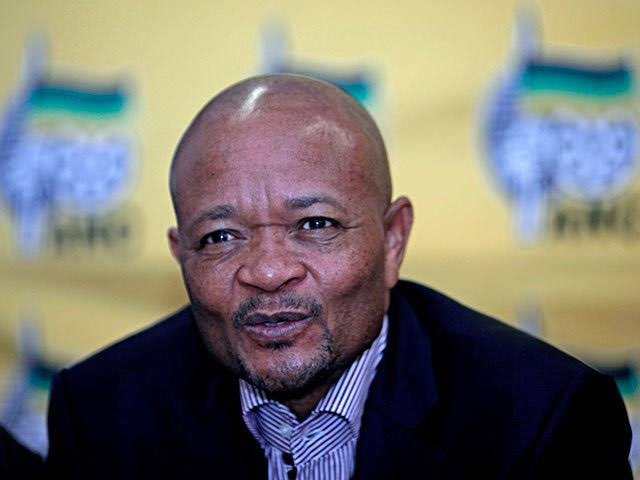
The stage was set for a high-stakes confrontation in Parliament. Suspended Police Minister Senzo Mchunu, facing a dedicated inquiry into allegations of corruption and interference, took his seat to answer for his most controversial decision: the disbanding of a specialised unit investigating political killings. What followed was a masterclass in political defence, with Mchunu reframing accusations of sabotage as acts of prudent financial management.
His testimony, often punctuated by sharp exchanges with MPs, provided a rare glimpse into the internal power struggles and justifications at the highest levels of South Africa’s policing.
The Price of Justice
One of the most persistent lines of questioning revolved around the cost of the Political Killings Task Team. When pressed on its value, Mchunu did not attack its successes but instead targeted its budget. He framed the unit as a financially unsustainable luxury, an exercise that had become “excessive” when viewed against the country’s wider policing needs.
In a strategic pivot, he turned the tables on his critics by publicly inviting the Auditor General to conduct a full-scale audit of all SAPS National Task Teams. This move reframed the debate from one about fighting crime to one about fiscal responsibility, putting his opponents on the defensive about state spending.
A Suggestion, Not an Order
The inquiry took a dramatic turn when Mchunu was questioned about a potentially unlawful instruction. He was asked point-blank if he had told his chief of staff to record conversations with KwaZulu-Natal police commissioner, Lieutenant General Nhlanhla Mkhwanazi.
Mchunu admitted he had “suggested” it but confirmed no recordings were ever made. He defended the idea, arguing that it is not wrong to record a conversation you are personally part of. The admission prompted a fiery rebuke from one MP, who declared that if it were up to him, “a police vehicle would be waiting outside to arrest Minister Mchunu for being dishonest.”
Redefining Urgency
A key point of contention was the language Mchunu used in his directive to disband the unit. His instruction for the team to be shut down “immediately” was seen by many as rash and disruptive.
Under scrutiny, Mchunu provided a new definition for the word. For him, “immediately” did not mean that very second. It meant the instruction would be actioned “on the day the offices opened” and would happen “in phases.” This linguistic recalibration aimed to paint his decision as measured and procedural, rather than the abrupt shutdown his critics allege.
Denials and Presidential Authority
The testimony delved into more serious terrain with allegations of connections to criminal figures. Mchunu admitted to knowing North West businessman Brown Mogotsi but vehemently denied any links to crime syndicates or to alleged murder suspect Vusimuzi “Cat” Matlala.
Perhaps his most confident moment came when he was asked if he would have reversed his decision if President Ramaphosa had disagreed with it. His answer was an immediate and unequivocal “Definitely,” a clear attempt to portray himself as a minister who acted within his authority but still respected the chain of command.
As the hearing concluded, the battle lines were firmly drawn. Mchunu presented himself as a cost-cutter making tough decisions, while his accusers see a different story altogether. The nation now waits for the next act, when his predecessor, Bheki Cele, takes the stand to tell his side of the story.
Follow Joburg ETC on Facebook, Twitter , TikTok and Instagram
For more News in Johannesburg, visit joburgetc.com

